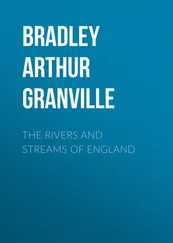Thomas Bulfinch - Oregon and Eldorado; or, Romance of the Rivers
Здесь есть возможность читать онлайн «Thomas Bulfinch - Oregon and Eldorado; or, Romance of the Rivers» — ознакомительный отрывок электронной книги совершенно бесплатно, а после прочтения отрывка купить полную версию. В некоторых случаях можно слушать аудио, скачать через торрент в формате fb2 и присутствует краткое содержание. ISBN: , Жанр: foreign_antique, foreign_prose, на английском языке. Описание произведения, (предисловие) а так же отзывы посетителей доступны на портале библиотеки ЛибКат.
- Название:Oregon and Eldorado; or, Romance of the Rivers
- Автор:
- Жанр:
- Год:неизвестен
- ISBN:http://www.gutenberg.org/ebooks/38774
- Рейтинг книги:3 / 5. Голосов: 1
-
Избранное:Добавить в избранное
- Отзывы:
-
Ваша оценка:
- 60
- 1
- 2
- 3
- 4
- 5
Oregon and Eldorado; or, Romance of the Rivers: краткое содержание, описание и аннотация
Предлагаем к чтению аннотацию, описание, краткое содержание или предисловие (зависит от того, что написал сам автор книги «Oregon and Eldorado; or, Romance of the Rivers»). Если вы не нашли необходимую информацию о книге — напишите в комментариях, мы постараемся отыскать её.
Oregon and Eldorado; or, Romance of the Rivers — читать онлайн ознакомительный отрывок
Ниже представлен текст книги, разбитый по страницам. Система сохранения места последней прочитанной страницы, позволяет с удобством читать онлайн бесплатно книгу «Oregon and Eldorado; or, Romance of the Rivers», без необходимости каждый раз заново искать на чём Вы остановились. Поставьте закладку, и сможете в любой момент перейти на страницу, на которой закончили чтение.
Интервал:
Закладка:
During all this period, though constant accessions were made to the knowledge of the coast by means of commercial adventure, the interior of the continent, from the Mississippi to the ocean, remained unknown. The intercourse of the people of the United States with the native tribes was restricted by several causes. One was the possession of Louisiana by the Spaniards; another, the retention by the British of several important posts south of the Great Lakes, within the acknowledged territory of the Union. At length, by the treaty of 1794 between Great Britain and the United States, those posts were given up to the Americans; and by treaty with France, in 1803, Louisiana, which had come into possession of that power in 1800, was ceded to the United States. From this period, the Government and people of the United States ceased to be indifferent to the immense and important region whose destinies were committed to them; and the ensuing narrative will relate the first attempt made by national authority to occupy and explore the country.
CHAPTER II.
LEWIS AND CLARKE
In the year 1786, John Ledyard of Connecticut, who had been with Capt. Cook in his voyage of discovery to the north-west coast of America in 1776-1780, was in Paris, endeavoring to engage a mercantile company in the fur-trade of that coast. He had seen, as he thought, unequalled opportunities for lucrative traffic in the exchange of the furs of that country for the silks and teas of China. But his representations were listened to with incredulity by the cautious merchants of Europe, and he found it impossible to interest any so far as to induce them to fit out an expedition for the object proposed.
Disappointed and needy, he applied for advice and assistance to Mr. Jefferson, at that time the American minister at the court of France. Ledyard had no views of pecuniary gain in the contemplated enterprise: he sought only an opportunity of indulging his love of adventure by exploring regions at that time unknown. Mr. Jefferson, as the guardian of his country's interests and the friend of science, was warmly interested in any scheme which contemplated the opening of the vast interior regions of the American continent to the occupancy of civilized man. Since it was impossible to engage mercantile adventurers to fit out an expedition by sea, Mr. Jefferson proposed to Ledyard that he should go as a traveller, by land, through the Russian territories, as far as the eastern coast of the continent of Asia, and from thence get such conveyance as he could to the neighboring coast of America, and thus reach the spot where his main journey was to begin. Ledyard eagerly embraced the proposal. Permission was obtained from the Empress Catharine of Russia, and the enterprising traveller, in December, 1786, set forth. He traversed Denmark and Sweden; passed round the head of the Gulf of Bothnia, after an unsuccessful attempt to cross it on the ice; and reached St. Petersburg in March, 1787, without money, shoes, or stockings, having gone this immense journey on foot in an arctic winter. At St. Petersburg he obtained notice, money to the amount of twenty guineas, and permission to accompany a convoy of stores to Yakoutsk, in Siberia. But, for some unexplained reason, he was arrested at that place by order of the empress, and conveyed back to Europe; being cautioned, on his release, not again to set foot within the Russian territories, under penalty of death. This harsh treatment is supposed to have arisen from the jealousy of the Russian fur-traders, who feared that Ledyard's proceedings would rouse up rivals in their trade.
Mr. Jefferson did not, upon this disappointment, abandon the idea of an exploration of the interior of the American continent. At his suggestion, the American Philosophical Society of Philadelphia took measures, in 1792, to send suitable persons to make a similar transit of the continent in the opposite direction; that is, by ascending the Missouri, and descending the Columbia. Nothing was effected, however, at that time, except awakening the attention of Capt. Meriwether Lewis, a young officer in the American army, a neighbor and relative of Gen. Washington. He eagerly sought to be employed to make the contemplated journey.
In 1803, Mr. Jefferson, being then President of the United States, proposed to Congress to send an exploring party to trace the Missouri to its source; to cross the highlands, and follow the best water communication which might offer itself, to the Pacific Ocean. Congress approved the proposal, and voted a sum of money to carry it into execution. Capt. Lewis, who had then been two years with Mr. Jefferson as his private secretary, immediately renewed his solicitations to have the direction of the expedition. Mr. Jefferson had now had opportunity of knowing him intimately, and believed him to be brave, persevering, familiar with the Indian character and customs, habituated to the hunting life, honest, and of sound judgment. He trusted that he would be careful of those committed to his charge, yet steady in the maintenance of discipline. On receiving his appointment, Capt. Lewis repaired to Philadelphia, and placed himself under its distinguished professors, with a view to acquire familiarity with the nomenclature of the natural sciences. He selected, as his companion in the proposed expedition, William Clarke, a brother-officer, known and esteemed by him.
While these things were going on, the treaty with France was concluded, by which the country of Louisiana was ceded to the United States. This event, which took place in 1803, greatly increased the interest felt by the people of the United States in the proposed expedition.
In the spring of 1804, the preparations being completed, the explorers commenced their route. The party consisted of nine young men from Kentucky, fourteen soldiers of the United-States army who volunteered their services, two French watermen, an interpreter, a hunter, and a black servant of Capt. Clarke. In addition to these, a further force of fifteen men attended on the commencement of the expedition to secure safety during the transit through some Indian tribes whose hostility was apprehended. The necessary stores were divided into seven bales and one box, the latter containing a small portion of each article in case of a loss of any one of the bales. The stores consisted of clothing, working tools, ammunition, and other articles of prime necessity. To these were added fourteen bales and one box of Indian presents, composed of richly laced coats and other articles of dress, medals, flags, knives, and tomahawks for the chiefs; ornaments of different kinds, particularly beads, looking-glasses, handkerchiefs, paints, and generally such articles as were deemed best calculated for the taste of the Indians. The company embarked on board of three boats. The first was a keel-boat, fifty-five feet long, carrying one large square sail and twenty-two oars. A deck of ten feet, at each end, formed a forecastle and cabin. This was accompanied by two open boats of six oars. Two horses were to be led along the banks of the river, for bringing home game, or hunting in case of scarcity.
The narrative of the expedition was written by the commanders from day to day, and published after their return. We shall tell the story of their adventures nearly in the language of their own journal, with such abridgments as our plan renders necessary.
May 14, 1804. – All the preparations being completed, they left their encampment this day. The character of the river itself was the most interesting object of examination for the first part of their voyage. Having advanced, in two months, about four hundred and fifty miles, they write as follows: "The ranges of hills on opposite sides of the river are twelve or fifteen miles apart, rich plains and prairies, with the river, occupying the intermediate space, partially covered near the river with cotton-wood or Balm-of-Gilead poplar. The whole lowland between the parallel ranges of hills seems to have been formed of mud of the river, mixed with sand and clay. The sand of the neighboring banks, added to that brought down by the stream, forms sand-bars, projecting into the river. These drive the stream to the opposite bank, the loose texture of which it undermines, and at length deserts its ancient bed for a new passage. It is thus that the banks of the Missouri are constantly falling in, and the river changing its bed.
Читать дальшеИнтервал:
Закладка:
Похожие книги на «Oregon and Eldorado; or, Romance of the Rivers»
Представляем Вашему вниманию похожие книги на «Oregon and Eldorado; or, Romance of the Rivers» списком для выбора. Мы отобрали схожую по названию и смыслу литературу в надежде предоставить читателям больше вариантов отыскать новые, интересные, ещё непрочитанные произведения.
Обсуждение, отзывы о книге «Oregon and Eldorado; or, Romance of the Rivers» и просто собственные мнения читателей. Оставьте ваши комментарии, напишите, что Вы думаете о произведении, его смысле или главных героях. Укажите что конкретно понравилось, а что нет, и почему Вы так считаете.












